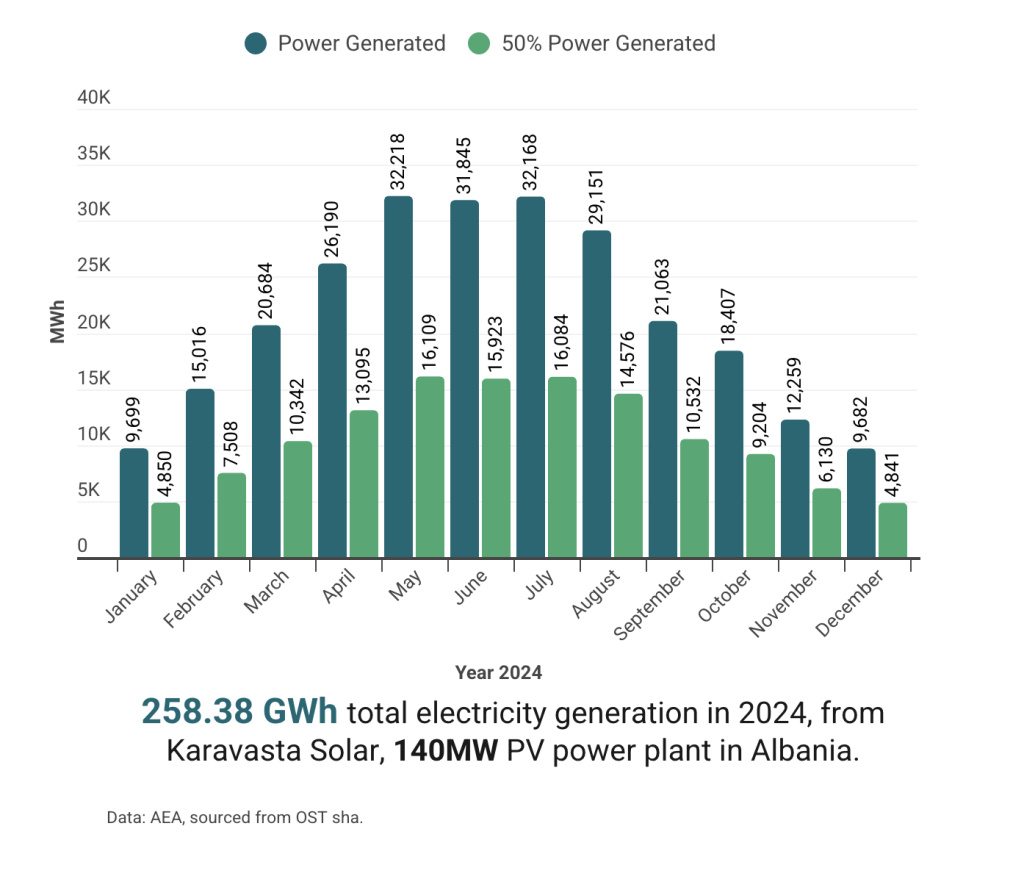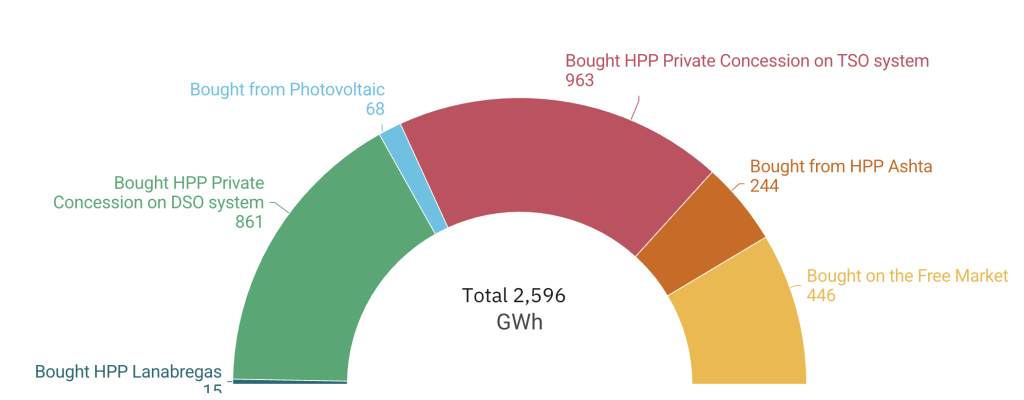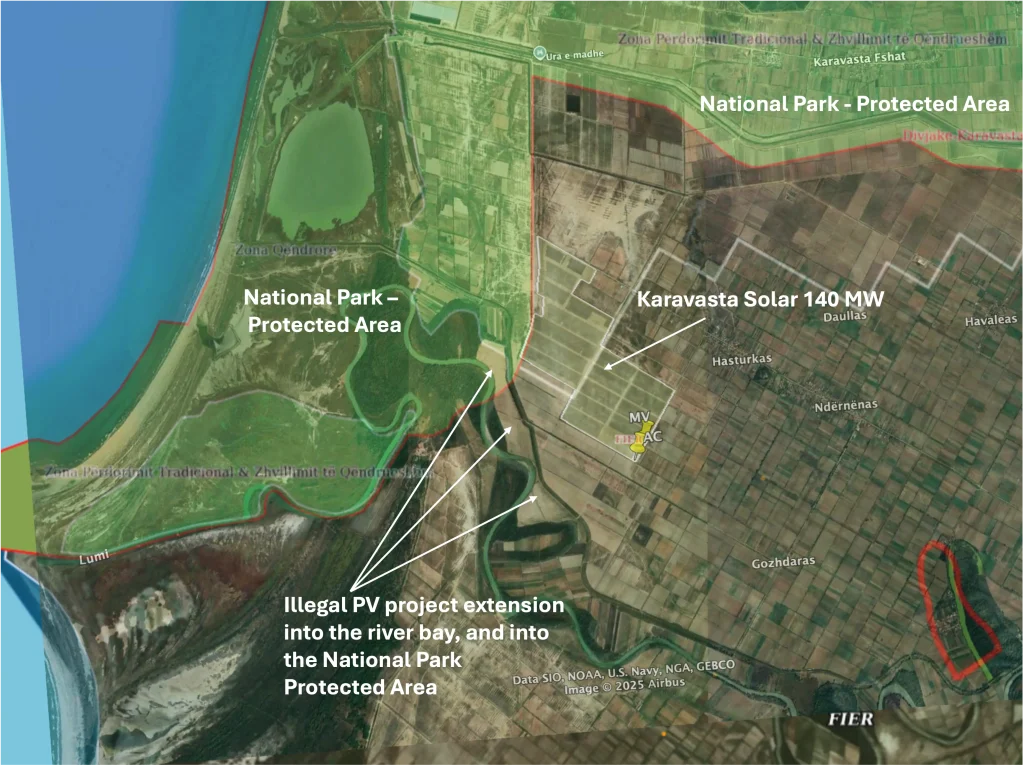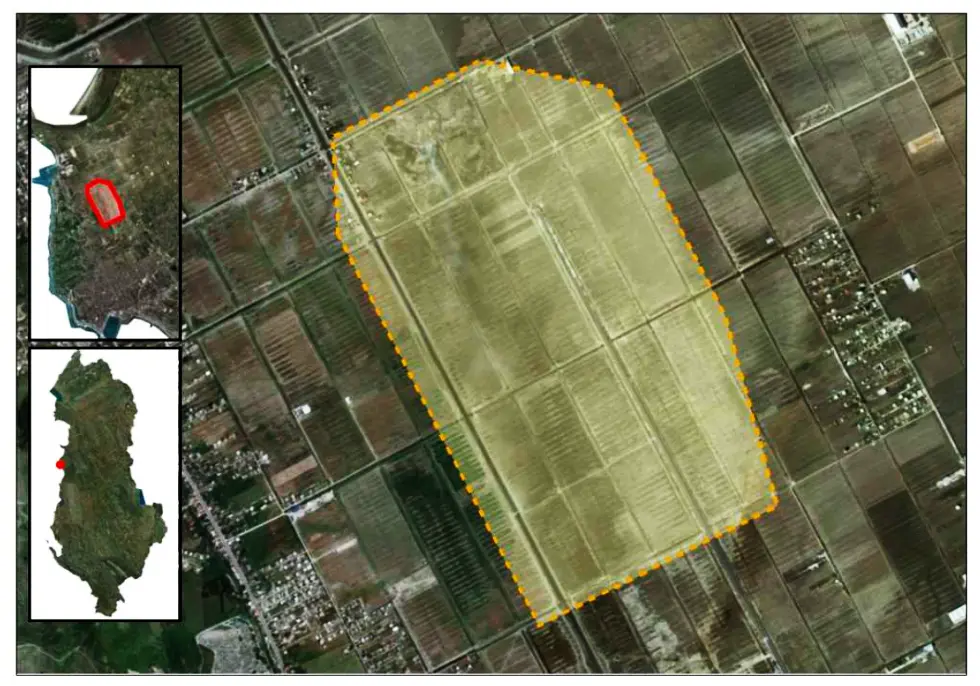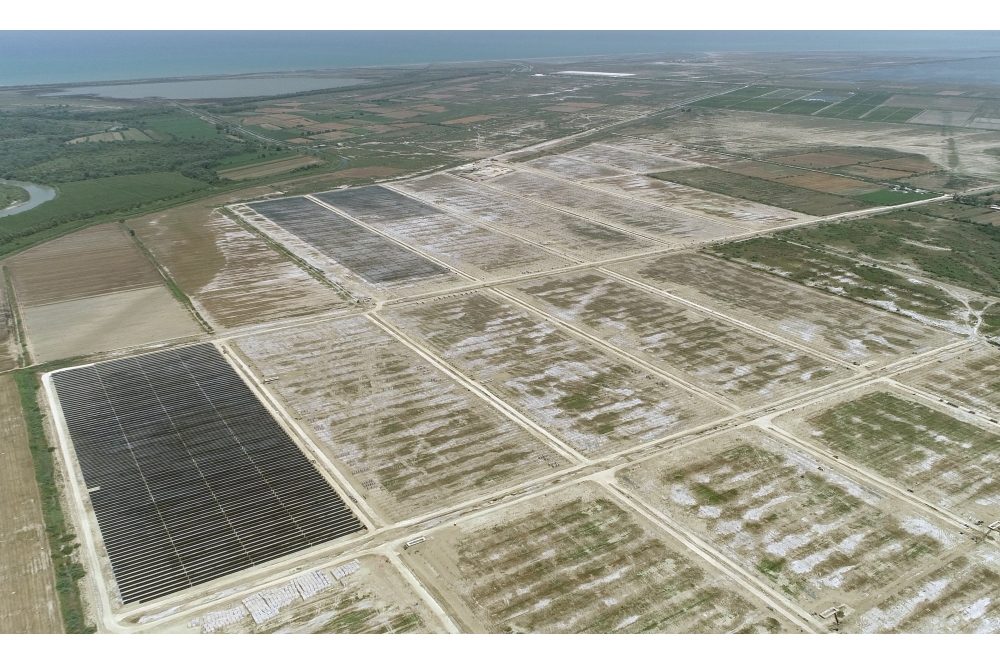
Green Energy or Green Corruption? Inside Voltalia’s Controversial Solar Concessions in Albania.
The Ministry of Infrastructure and Energy of Albania signed the Project Development Agreement with Voltalia for the construction of the photovoltaic plant in Remas – Karavasta (near the Lushnja area) with an installed capacity of 140 MW, where the power generation from 70 MW will be offered as part of the support measures at a price of 24.89 euros/Mwh to state owned company ( OSHEE GROUP , public company) for 15 years and 70 MW will be traded on the free market, supported by EBRD with 33M Euro loan. The Karavasta Solar Park entered production in January 2024.
The concession agreement in question leaves numerous concerns unsettled. Beyond its significant social and environmental consequences—strongly opposed by local communities due to its proximity to the Divjaka-Karavasta National Park—the project represents Voltalia’s expanding and contentious presence in Albania. This development looks to follow the trend of so-called “green” efforts in the country, which have long been marred by suspicions of green corruption.
For 2024, the Karavasta solar power plant reported total electricity generation of 258.38 GWh. Yet the Energy Regulator Authority’s (ERE) report does not disclose the destination of roughly half of that output — 129.19 GWh — which should be sold under a contractual tariff of €24.89/MWh (towards OSHEE group). That unexplained 50% gap in the balancing is striking. The same report shows that FTL sh.a the Free Market Supplier, purchased only 67.7 GWh from domestic photovoltaic producers, while the other amount of the total of 2,596 GWh were supplied including hydropower generation and purchased on the free market. Taken together, these figures reveal inconsistencies in market reporting and raise serious questions about transparency, corruption, contractual compliance, and the adequacy of regulatory oversight.
The Karavasta Solar PV plant site is adjacent to Divjaka-Karavasta National Park, a Candidate Emerald Site under the Bern Convention encompassing Karavasta Lagoon Ramsar Site. The project site also partially overlaps with the Karavasta Lagoon Key Biodiversity Area (KBA) and Important Bird Area (IBA) designated for globally threatened bird species, important congregations of wintering and breeding waterbirds, and the endemic Albanian Water Frog.
The Ministry of Infrastructure and Energy Albania held an international bid procedure to build also the 100 MW Spitalla photovoltaic park in Durrës, which Voltalia SA won. According to the tender, 70 MW of the capacity would get subsidized compensation of €29.89/MWh for 15 years, with the remaining 30 MW sold on the free market. The Project Agreement and Power Purchase Agreement (PPA) were signed in June 2021, and the project is currently being implemented again by Voltalia SA.
In the case of the Spitalla Solar project, Voltalia SA has proceeded with internal tenders and begun constructing high-voltage lines, a substation bay, and the plant itself, despite failing to provide formal communication to stakeholders or local residents. No environmental and social impact assessment (ESIA), restoration plan, or archaeological survey has been presented, nor has any meaningful public hearing been conducted to date. The company is reportedly working with a well-connected local firm linked to government and political circles to produce the required reports and assessments—documents that, critics allege, exist largely on paper. Local communities, facing limited possibilities for recourse, describe the project as shielded by a network of political protection and systemic corruption.
Voltalia SA established two local businesses — “Spitalla Solar” and “Karavasta Solar” — through its Dutch vehicle, Voltalia Management International B.V., which is registered in a country that may hinder transparency. Spitalla Solar has two foreign administrators, Bertrand Pierre Francis Tournier and Gustavo Manuel Ferreira Fernandes; the same people also run Karavasta Solar, the concessionaire for the Karavasta solar park, which has a 30-year concession. The fact that both Albanian companies are subsidiaries of a Dutch holding company raises valid concerns regarding ultimate beneficial ownership, corporate transparency, and regulatory control.
It appears that Prime Minister Rama may have steered these projects toward associates tied to President Macron — a move critics describe as a political favour rather than a transparent procurement outcome. The 2020 Albanian Law on the Beneficial Ownership Registry was intended to reveal company shareholders, but its 25% disclosure threshold leaves room for concealing minority owners; consequently, a convicted individual or someone embedded in politics could remain undeclared if they hold under 25% of a company’s shares, even when that company wins public contracts. The planned 100 MW photovoltaic park is covered to be developed alongside the new Durrës Port and the Reconstruction zone — developments likely to reshape the local real-estate market. In this sensitive corridor, a French firm and a Dutch entity with opaque ownership structures were granted 121 hectares by the government for 30 years, a deal that raises serious questions about transparency, accountability and the protection of the public interest.
The financial advantages and drawbacks of concession agreements, compared to new production capacity outside such arrangements, are closely tied to contractual provisions defining the allocation of financial risk. According to a statement by Voltalia SA, concession contracts can shift this burden onto the Albanian state budget, effectively exposing public finances to potential liabilities—often without the public’s awareness.
By Ranier della Vecchia
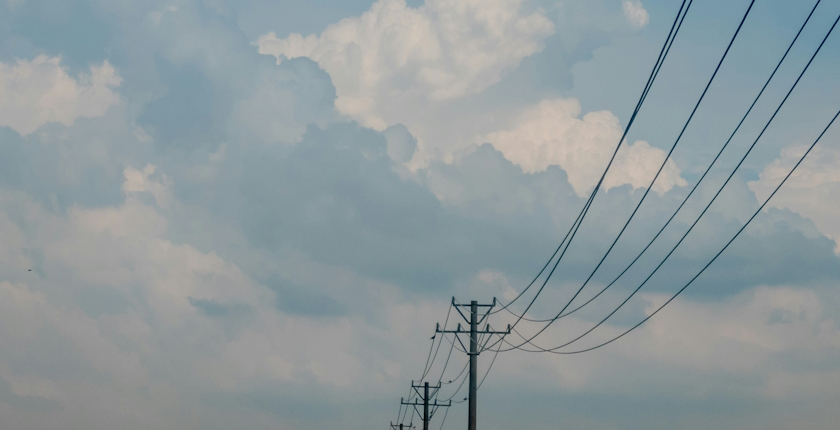
Montenegro’s transmission system operator CGES boosts profit by 28.1%
Montenegro’s transmission system operator CGES achieved a net income of EUR 12.9 million in the first six months of this year. It is 28.1% more than in the same period of 2024 and on a 2.5% higher revenue.
The dedication to quality and operational efficiency is materializing in concrete results, and the outlook remains bright, the management of Montenegro’s electricity transmission system operator (TSO) said. In the semiannual financial report that it published on the website of the Montenegro Stock Exchange, Crnogorski elektroprenosni sistem (CGES) revealed that its total revenue came in at EUR 47.9 million or 2.5% more than in the first half of last year.
Expenditures grew 0.27% to EUR 33.3 million. The company achieved a net income, after tax, of EUR 12.9 million. It is a substantial, 28.1% rise against the result from the equivalent period of 2024.
CGES doesn’t expect that power price volatility and growth would significantly affect its financial stability
“The volatility and growth of electricity prices in the market that was caused by problems in the delivery of oil and gas in Europe, and later with the war in Ukraine, represent a risk affecting a potential increase in costs for the procurement of energy to cover allowed losses in the transmission system; however, without a more pronounced effect on the company’s financial stability throughout the current year. CGES has already launched certain activities to partly mitigate the impact of this risk,” the document said.
The government has a 55.4% stake in CGES. The next-biggest shareholder is Italy’s TSO Terna, which controls 22.1%, while Serbia’s TSO Elektromreža Srbije (EMS) holds 15%.
The Podgorica-based company had a EUR 24.8 million profit in 2024, after EUR 35.7 million the year before.
Of note, CGES signed a letter of intent in March with the two other state-owned electricity companies – power producer Elektroprivreda Crne Gore (EPCG) and CEDIS, the country’s distribution system operator (DSO) – on establishing strategic cooperation for the Consolidated Data Center (CDC) project.
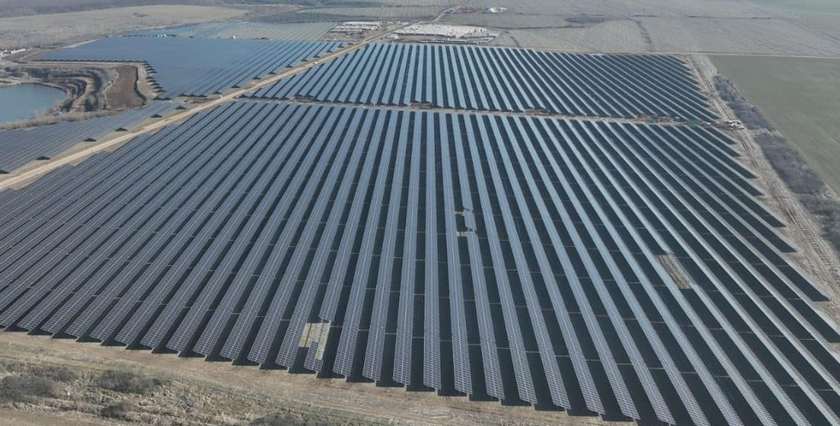
Nofar Energy set to secure financing for 515 MW of solar in Romania
Israeli renewables company Nofar Energy is set to secure a EUR 68 million loan from the European Bank for Reconstruction and Development (EBRD) for three large-scale photovoltaic projects in Romania, with a combined capacity of 515 MW, including the 265.5 MW Corbii Mari solar park.
The EBRD’s loan, with an expected approval date of September 10, 2025, will be disbursed to Nofar’s three Romanian subsidiaries – Corbii Mari Solar Plant, Aviv Renewable Investment, and Slobozia Solar Plant.
Nofar’s firms intend to build a 175.7 MW solar farm in Iepurești, a 74 MW solar farm in Slobozia, both in Giurgiu county, and a 265.5 MW solar farm in Corbii Mari, Dâmboviţa county, according to the EBRD.
The three solar parks are expected to generate 676 GWh of electricity annually. Their operation is expected to reduce CO2 emissions by 280,000 tons annually, the bank noted.
The three solar parks are expected to produce 676 GWh a year
The Corbii Mari solar park, spanning a total of 290 hectares, would be located near the Romanian capital, Bucharest. Given its size, the project is divided into six lots, Romanian news portal Profit.ro reported.
Nofar operates the largest existing photovoltaic park in Romania, of 155 MW, located in Rătești in Argeș county.
Nofar’s 155 MW solar park in Rătești is currently the largest in Romania
There are other major photovoltaic projects in Romania larger than Corbii Mari, in various stages of development, including one of over 1 GW, under development in Arad county by Czech company Rezolv Energy.
Ingka Investments, the investment division of Sweden-based Ingka Holding, the largest IKEA franchisee company, is building its first solar power plant in Romania. The Butimanu project is for 300 MW in peak capacity, it recently said.
Nofar is also developing the Ghimpați solar project near Bucharest, with an installed capacity of 146 MW. Earlier this year, the Israeli company said it had connected to the electricity grid its solar park in Ada, the largest such system in neighboring Serbia.
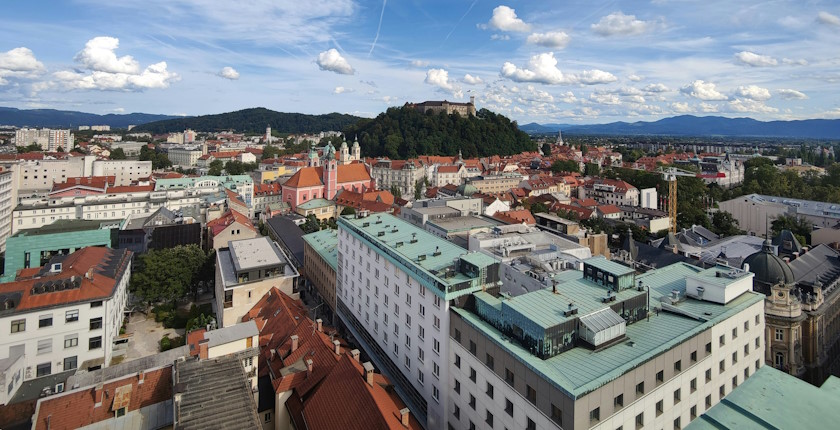
Slovenia sells Europe’s first sustainability bond, worth EUR 1 billion
Slovenia accessed the international markets with its inaugural sustainability-linked bond, oversubscribed by more than 6.5 times. The interest payable can grow or drop by 50 basis points depending on the country’s progress in cutting greenhouse gas emissions. It is the first-ever sustainability-linked bond issue from a European sovereign, the Ministry of Finance pointed out.
Bankers and fund managers flocked around the first sustainability-linked bond that Slovenia offered in the market. Demand reached over 6.5 times more than the EUR 1 billion available, with a 10-year maturity. It is also the first-ever sustainability-linked bond issue from a European sovereign, the Ministry of Finance pointed out.
The country’s Sustainability Bond Framework is also in line with the Green Bond Principles of the International Capital Market Association – ICMA, and it takes into account the Green Bond Standard of the European Union. The proceeds from sustainability bonds are for financing or refinancing eligible green or social projects.
If Slovenia doesn’t achieve a 35% cut in total greenhouse gas emissions by 2030, relative to the 2005 baseline, the interest payable on the note will increase by 50 basis points, commencing nine years after the settlement date. If the emissions cuts surpass 45%, the rate will go 50 points lower, the documentation shows.
High demand resulted in a drop in the price spread from 70 to 61 basis points above the benchmark
The initial price guidance was at 70 basis points above the mid-interest rate swap as benchmark. Strong demand, including EUR 435 million in joint lead managers (JLM) interest, slashed the spread to 61 points. The note has a 3.125% fixed-rate coupon, reoffer yield of 3.155% and reoffer price of 99.746%, the ministry revealed.
As for the geographical distribution of the buyers, 23% are in the United Kingdom or Ireland, 20% is in the region comprising Belgium, Netherlands and Luxembourg, and 15% are from Germany, Austria or Switzerland. Next is Southern Europe, with 12%, followed by Slovenia’s 11%, a 9% Nordics share and 5% for France.
Asset managers amounted to 54% of the total sum. Central banks and other official institutions, at 18%, were just barely ahead of other banks (17%). Insurance and pension funds purchased 5% and hedge funds now hold 4% of the issue.

European Energy Communities Facility to award EUR 45,000 per project
The European Energy Communities Facility has launched its first call for proposals to support the development of comprehensive business plans for community energy projects. Emerging energy communities in 27 European Union member states, Iceland, Moldova, North Macedonia, and Ukraine can apply for a lump sum grant of EUR 45,000 per beneficiary.
The European Energy Communities Facility grants are intended to support the development of comprehensive business plans for community energy projects in 31 countries. A total budget of over EUR 3 million will be distributed among 73 selected initiatives to empower citizens to drive a fair, democratic, and sustainable energy transition. The application deadline is September 30.
The application deadline is September 30
The funding will cover all preparatory steps needed to develop a sound, viable, and bankable business plan, from technical and financial assessments to legal and administrative procedures, including feasibility studies.
In addition to financial support, successful applicants will gain access to peer-to-peer exchanges and a capacity-building programme, tailored to help them develop and implement their business plans.
Existing communities also can apply
While the call is primarily aimed at emerging energy communities, existing communities exploring new services or business models are also eligible to apply.
To qualify, the applicant must be registered as a legal entity and comply with one of the EU definitions for energy communities, be based in an eligible country (EU27, Iceland, Moldova, North Macedonia, and Ukraine), and commit to fulfilling all grant obligations.
To ensure fairness, applications will be assessed within two regional categories, based on the legal framework for energy communities of each country. This approach guarantees that initiatives developed in countries facing more challenging conditions for community energy will not be in competition with those emerging from countries with more favorable conditions.
Independent experts will evaluate proposals based on project ambition, readiness, quality, and local impact. The evaluation results are expected to be communicated by December.
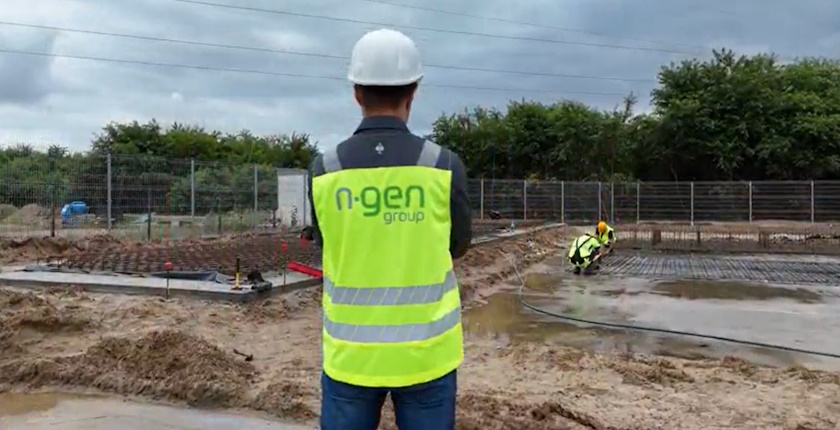
NGEN Group launches 9.4 MW battery project in Poland; more large-scale investments underway
NGEN Group, a high-tech company with a strong focus on innovation in the energy sector, particularly in the management and construction of battery storage systems, announced that it has launched an energy storage project in Poland. The initiative marks a significant step in the company’s expansion into the Polish market, where it leverages cutting-edge technology to support the country’s transition to a more sustainable and resilient energy infrastructure.
NGEN Group said it plans to undertake several similar projects across Europe in the coming year, including the development of battery systems with a total capacity of up to 1.6 GWh in countries such as Germany, Italy, Portugal, Poland, Croatia, and Austria.
The new battery energy storage system (BESS) will have a power capacity of 9.4 MW and an energy capacity of 18.8 MWh. Powered by Tesla Megapack 2XL technology, the system is designed to provide critical grid balancing services for Poland’s energy system, enhancing network flexibility and stability.
Significant environmental benefits
Beyond these operational benefits, the project is expected to deliver a significant environmental impact, saving approximately 1,800 tons of CO2 emissions annually. This aligns with broader trends in Poland.
“We are thrilled to introduce this advanced energy storage solution in Poland, which is fully aligned with our mission: ‘We are accelerating the green transition with innovative and sustainable energy solutions.’ This drives the next generation of sustainable energy,” said Roman Bernard, co-founder and CEO of NGEN Group. “By integrating Tesla Megapack technology, we are not only strengthening the reliability of the national grid but also contributing to Poland’s ambitious goals for renewable energy integration and carbon emission reduction.”
The project highlights NGEN Group’s expertise in delivering tailored, comprehensive energy solutions for businesses and energy services. As Poland continues to expand its renewable energy portfolio, initiatives like this battery storage system will play a crucial role in managing the intermittency of sources such as wind and solar, ensuring a stable electricity supply, and reducing reliance on fossil fuels.
NGEN is expanding its model across Europe
The company has already successfully collaborated on projects such as the development of a battery system for Uniper in Germany, and it aims to expand this model across Europe.
Based in Slovenia, NGEN Group, meaning Next Generation, specializes in innovative energy solutions, management, and construction of battery storage systems with intelligent balancing group management systems.
The company employs approximately 165 experts, develops proprietary software solutions, and offers customized services to promote sustainable energy practices across Europe. Its vision is a fully digitized and decentralized European energy system that keeps pace with the rapid growth of renewable energy and societal electrification.
NGEN was the technology sponsor this year of Belgrade Energy Forum, an annual conference organized by Balkan Green Energy News.

